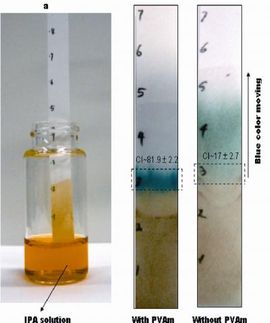Information on the risks and benefits of pesticides does not reach consumers
BfR publishes study on awareness of pesticides in food
Advertisement
Consumers know little about pesticide residues in food. They do show considerable interest in this subject but don’t think they are sufficiently well informed. This is the outcome of representative population survey commissioned by the Federal Institute for Risk Assessment (BfR). The goal of the study was to obtain detailed information on the awareness and information behaviour of the population with regard to pesticides. The study results show that information on pesticides does not reach consumers. This leads to misjudgement of the use and statutory regulation of pesticides. "Almost 70 percent of the respondents think that food may not contain any pesticide residues", says Professor Dr. Dr. Andreas Hensel, President of BfR. "People do not know that small amounts of pesticides are permitted when they are safe." BfR will draw on the results of the study to provide consumers with information on the risks and benefits of pesticides in a more targeted manner.
The backdrop to the representative population survey is the considerable public interest in the subject of pesticides in food. German consumers see pesticides in food as a major health risk. Furthermore, the media regularly take up this subject.
According to the study 70 percent of the respondents assume that pesticide residues are not permitted in food at all. They are perceived as an infringement of the law even when the amounts remain below the statutory maximum residue levels. The statutory maximum levels ensure that pesticide residues in food do not constitute a health risk for consumers. This misjudgement by consumers contributes to a situation in which pesticide residues are seen as a health risk. The media pick this up and may sometimes strengthen this impression amongst the public at large.
Furthermore, the study revealed a contradiction: on the one hand 86 percent of the respondents agree with the statement that pesticides increase the productivity of the farming industry. On the other hand, only 23 percent of the respondents think that pesticides are needed for the production of food and 54 percent are not aware that pesticides may also be used in organic farming.
Overall the respondents feel that they are poorly informed about pesticides and their residues. They do, however, indicate major interest in information on this subject. They named newspapers, television and the Internet as the most important sources of information. The media coverage of this subject is of greater importance than the original source of the information, for instance public authorities, scientists or manufacturers.
BfR feels that the results of the population survey provide important learnings for risk communication. Firstly, consumers should be informed in a more targeted manner about the risks and benefits of pesticides and their statutory regulation. Secondly, the link between agriculture and food production should be clearly highlighted in communication on this subject. In order to achieve this, BfR plans to strengthen its cooperation with multipliers, for instance from consumer and environmental associations, industry and agriculture.



























































